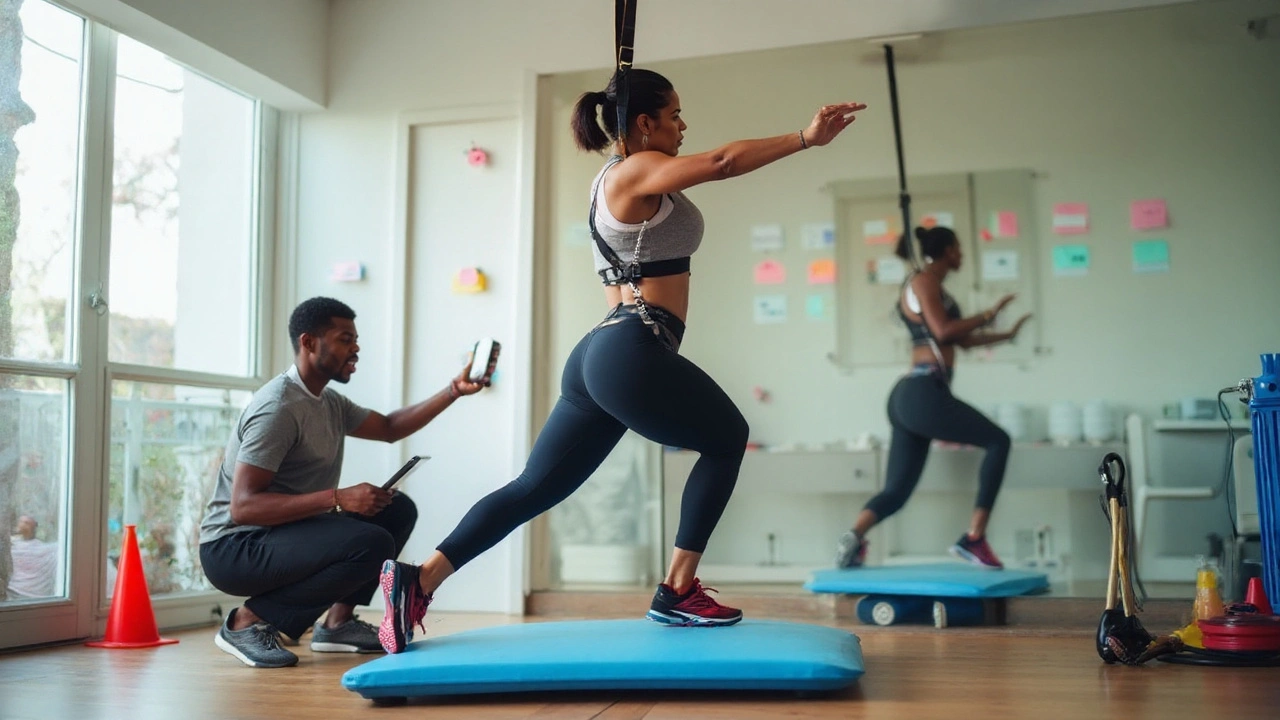Fall Prevention for Multiple Sclerosis: Simple Steps to Stay Safe
Living with MS means you already deal with fatigue, weakness, and unpredictable nerve signals. Add a slip or stumble to that mix and you’re looking at injuries that can set you back weeks or even months. The good news? Most falls can be avoided with a few practical changes you can start today.
First, understand why MS makes you more prone to falls. Nerve damage can affect balance, coordination, and muscle strength. Even on a good day, a sudden loss of sensation in your feet can send you off‑balance. Knowing the triggers—like rushing up stairs or walking on uneven ground—helps you plan ahead.
Home Tweaks That Work Right Away
Turn your house into a fall‑friendly zone without a full renovation. Secure loose rugs with non‑slip backing or tape; a single loose rug is a classic trip hazard. Keep pathways clear—store shoes, bags, and cords out of walking routes. If you have stairs, add sturdy handrails on both sides and consider a stair‑lifter or a small step stool for higher shelves.
Lighting matters more than you think. Swap out dim bulbs for brighter LEDs, especially in hallways and bathrooms. Night‑lights on the way to the bathroom can prevent a midnight stumble. If you use a walker or cane, make sure the tip is rubber‑gripped for extra traction on slick floors.
Exercise, Footwear, and Daily Habits
Targeted exercise is a game‑changer. Simple balance drills—like standing on one foot for ten seconds or heel‑to‑toe walking—can boost proprioception. Stretching tight hamstrings and calf muscles reduces sudden jerks that throw you off. Many physiotherapists offer short video routines you can do at home; aim for 10‑15 minutes a day.
Footwear should be stable, not flashy. Choose shoes with a low heel, firm sole, and a good fit. Avoid slip‑on sandals or high‑top sneakers that don’t support the ankle. If you’re prone to swelling, consider moisture‑wicking socks and shoes with adjustable straps.
Medication review is often overlooked. Some drugs for spasticity or pain can lower blood pressure, making you dizzy when you stand. Talk to your doctor about timing doses so you’re not low‑on‑energy when you need to move around.
Finally, build a safety net. Keep a phone within reach, especially if you’re alone. Draft a quick “fall plan”—who to call, where your medical info is stored—so you can act fast if something does happen. Community resources like local MS support groups often share fall‑prevention workshops; joining one can give you fresh ideas and motivation.
Bottom line: falls aren’t inevitable with MS. By tightening up your home, staying active, choosing the right shoes, and keeping meds in check, you dramatically cut the risk. Small, consistent steps add up to steadier, safer days—and more freedom to enjoy the things you love.

Sclerosis and Balance Problems: Why MS Causes Dizziness, Vertigo, and Falls
Harrison Greywell Aug, 31 2025 11Clear, evidence-based guide to why MS affects balance, how to spot red flags, what tests matter, and the best rehab, exercises, and fall-proof tips.
More Detail